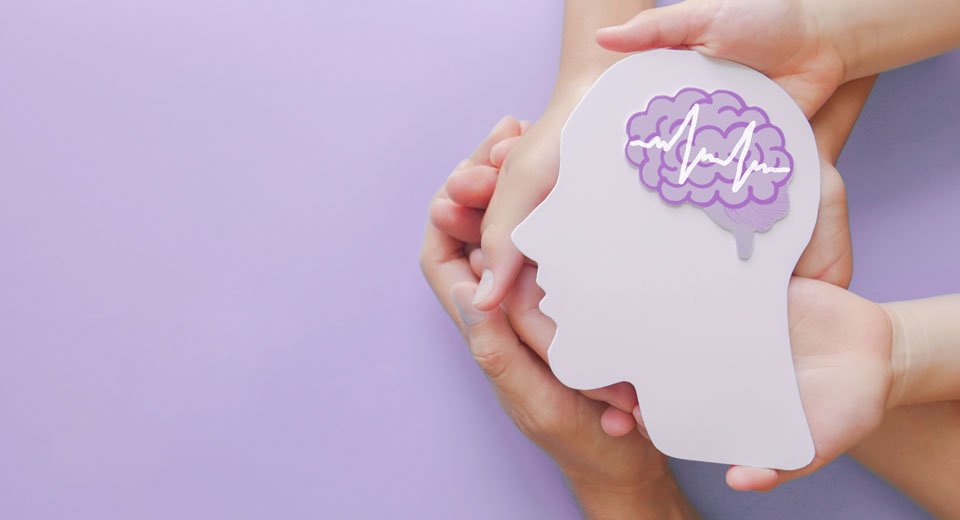These 3 things are good for your brain

“Determine never to be idle,” Thomas Jefferson said. “It is wonderful how much may be done, if we are always doing.”
Staying busy may have more benefits than Jefferson could have imagined, as research continues to show that the more we do, the better chances we have of keeping our brains sharp as we age.
“I tell all my patients to stay physically active, mentally active and socially active,” said Hyannis neurologist Michael Markowski, DO, FANN. Here’s what he recommends for good cognitive health:
1. Physical Activity – You don’t have to run a marathon, but multiple studies show the benefit of elevating your heart rate for 30 minutes, three or four days a week, he said. For instance, the American Academy of Neurology completed a 20-year study that showed activity keeps your brain sharper, even if you have dementia. Even a marginal boost in physical activity has the potential to reduce the chances of dementia by as much as 31 percent, the research said.
2. Mental Activity –Read and stay mentally engaged. Even though there’s no proof that doing crossword puzzles will improve memory, activities like this can help you stay mentally active, Dr. Markowski said.
3. Social Activity – A recent study by researchers at Brigham and Women’s Hospital said that widowhood may promote cognitive decline, especially among people who are at risk for Alzheimer’s disease. “Their cognitive decline probably has a lot to do with their corresponding decline in social activity, including loss of the emotional support and social interaction marriage can provide,” Dr. Markowski said.
“Results of studies like this make us even more aware of the kind of help we need to offer patients who are living alone,” he said.
A heart-healthy diet is also good for the brain, and Dr. Markowski recommends focusing on a diet high in fruits, vegetables, whole grains and fish.
“Limit alcohol to one or a maximum of two beverages a day,” he said. “Avoid or minimize butter, red meat, and foods high in cholesterol and added sugars, such as fried food and pastries.”
Fighting Alzheimer’s Disease and Dementia
According to Dr. Markowski, Alzheimer’s disease is the most common cause of dementia, which robs patients of memory, impairs reasoning and causes personality changes. Alzheimer’s disease accounts for 60 to 80 percent of all cases of dementia.
Although the cause of Alzheimer’s disease is unknown, staying physically, mentally and socially active are associated with improved cognitive function, and “we know that what’s good for the heart is good for the brain,” he said.
Today, an estimated 5.8 million Americans 65 and older have Alzheimer's disease, and the numbers are growing in the U.S. and worldwide, according to the Alzheimer’s Association.
“Alzheimer’s—just one disease—will bankrupt Medicare by 2050 if we don’t devise any viable treatment or prevention,” Dr. Markowski said. “The problem is you can only treat a disease if you know the cause, and we do not know the underlying cause of Alzheimer’s. It’s not for a lack of effort. Every year, we spend billions of dollars on research. Doctors and legislators are well aware that we must continue to invest in research to find new viable treatments.
“The sooner you see a primary care physician, the sooner you’re referred to a neurologist and the sooner we can complete a diagnostic workup including CT scan, lab work among other testing to assess for treatable causes and reach the proper diagnosis.”
There are multiple reasons for these symptoms; it isn’t always Alzheimer’s disease or dementia, he added.
“It’s imperative to get an accurate diagnosis when you experience these symptoms.”
Dr. Markowski and the other neurologists at Cape Cod Neurologists make sure every patient they diagnose with dementia is referred to the two local community dementia care support services on Cape Cod: Cape Cod Healthcare’s Dementia & Alzheimer’s Caregiver Support program or the Alzheimer’s Family Support Center.
“I can’t say enough about the value of these programs and services they provide including essential support for dementia patients and their caregivers ,” Dr. Markowski said.
